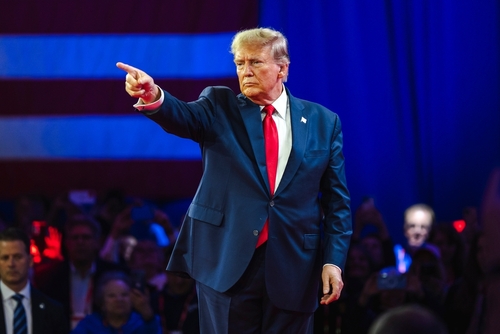A shocking new report has unveiled critical security lapses by the Secret Service during an attempted assassination on former President Donald Trump at a campaign rally in Butler, Pennsylvania, on July 13, 2024. The whistleblower revelations, brought forward by Senator Josh Hawley (R-MO), paint a disturbing picture of negligence and incompetence within the United States Secret Service and Department of Homeland Security (DHS), which have been slow to provide answers.
The whistleblower report details numerous failures that allowed the would-be assassin, Thomas Matthew Crooks, to shoot at Trump from a nearby rooftop. Crooks managed to fire multiple shots into the crowd, killing one individual and injuring several others, including Trump, who sustained minor injuries. The attack marked the first assassination attempt on a former or sitting president since 1981.
Why are both attempted of President Trump assassins working in the BlackRock commercials? Inside job.
The Deep State? The FBI? The CIA? The Secret Service?
Hope he does not get Epsteined. #trumpassassinationattempt2 #TrumpAssassinationAttempt pic.twitter.com/3yx37ZOraI
— AJ Huber (@Huberton) September 16, 2024
One of the most egregious failures exposed in the report was the absence of Secret Service intelligence units, which are typically responsible for coordinating with local law enforcement to assess and respond to security threats. These teams were noticeably absent at the Butler rally, a critical failure that left the venue vulnerable. Moreover, local law enforcement had reportedly offered the Secret Service drone surveillance to bolster security, but this offer was repeatedly declined.
The whistleblower claims that Crooks used a drone to livestream the event site just hours before carrying out the attack. The drone captured clear footage of the rally, which should have raised alarms, but no countermeasures were deployed. Crooks then positioned himself on the roof of a nearby building, armed with an AR-15, and opened fire. The absence of a counter-sniper team and other standard security protocols enabled Crooks to get close enough to carry out his attack.
President Trump's round of golf was not on any public schedule. How did the suspect know President Trump was golfing there today and near the 5th Hole?
2nd Trump's assassination attempt. Inside Job?
God Bless President Trump! pic.twitter.com/aaMMBPXdwM
— AJ Huber (@Huberton) September 15, 2024
This report also highlights deficiencies at the hospital where Trump was taken for treatment after the shooting. Security at the hospital was reportedly so lax that even basic questions about site protection could not be answered by the agent in charge. Furthermore, the whistleblower alleged that many of the personnel assigned to the rally were not Secret Service agents but Homeland Security officers, who lacked the necessary training for such high-stakes security.
In the wake of the assassination attempt, Senator Hawley has called for an extensive investigation into the Secret Service's failures. He has demanded answers from DHS Secretary Alejandro Mayorkas, particularly regarding the decision to scale back security and refuse local law enforcement’s help. Hawley has also criticized the ongoing efforts of DHS and the Secret Service to stonewall congressional inquiries, accusing them of slow-walking investigations and avoiding accountability.
These failures have had far-reaching consequences. The Secret Service’s Acting Director, Kimberly Cheatle, faced intense bipartisan scrutiny during a Senate hearing, where she admitted that the July 13 incident represented the most significant operational failure in decades. Cheatle, who struggled to provide satisfactory answers, announced her resignation shortly after the hearing.
As investigations continue, whistleblowers have come forward to describe an alarming culture of complacency within the Secret Service. The agency’s outdated training methods and refusal to adapt to evolving threats were pointed out by insiders who noted that security measures, such as the use of drones, were ignored despite growing risks.




